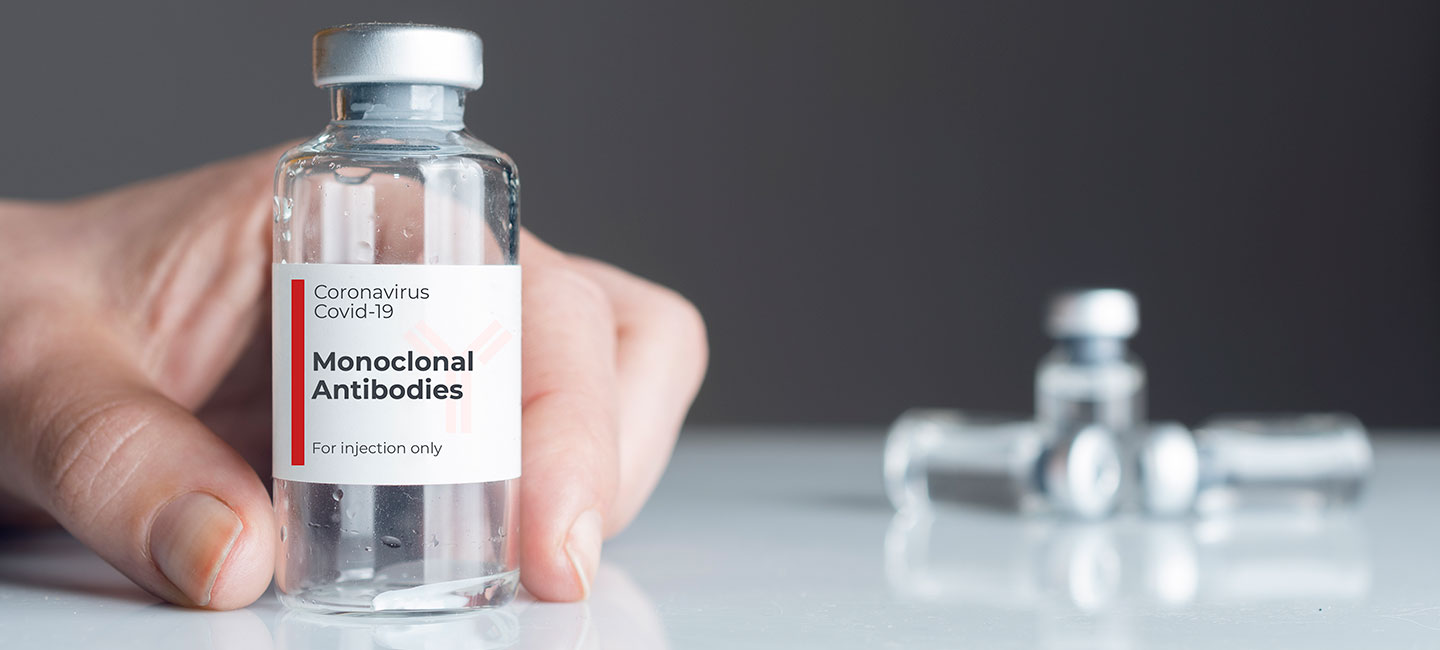How Are Monoclonal Antibodies Fighting COVID-19?
As the battle with COVID-19 continues and new variants are constantly being discovered, the good news is that there are more treatment options than before, including monoclonal antibodies. This medication can be used not only to treat mild to moderate COVID-19, but also to help prevent the disease. The biggest challenge? Supplies are extremely limited.
So how do monoclonal antibody treatments work? The COVID-19 virus attaches to and invades host cells using the spike protein. Once the virus enters the cell, it can instruct the cell to make more copies of itself, which can then infect other cells.
Monoclonal antibodies are laboratory designed proteins that are modeled after the antibodies naturally produced in response to a virus. Monoclonal means that all of the antibodies in the treatment are designed to attack a specific target.
“In the case of COVID-19, the monoclonal antibodies attach to the spike protein, which can prevent the virus from attaching to the cell and infecting it,” said Dr. John Greene, chair of the Infectious Diseases Program at Moffitt Cancer Center.
Monoclonal Antibodies for COVID-19
Evusheld
- Used to help prevent COVID-19
- One dose, given as two consecutive injections
- May be effective for up to six months and given again
Sotrovimab
- Used to treat COVID-19
- One dose given intravenously for 30 minutes
- For patients with mild to moderate symptoms from COVID-19 infection who are at high risk of severe illness
The goal of the treatment is to reduce the amount of viruses in the body, also known as the viral load, which can result in milder symptoms and lower risk for progression to severe disease, which requires hospitalization.
“The monoclonal antibody is like your own immune system responding as if you are vaccinated,” said Greene. “Vaccinations are called active because it’s your immune system producing the antibody. In contrast, getting a monoclonal antibody is passive because your immune system is not producing it. We’re giving you high titers of antibody.”
Treating COVID-19
In May 2021, the FDA issued an emergency use authorization for Sotrovimab to treat high-risk patients with mild to moderate COVID infections.
Sotrovimab is administered as a single dose intravenously over 30 minutes for patients with mild to moderate symptoms from COVID-19 infection who are at high risk of severe illness. This includes patients 65 and older or those who have certain medical conditions.
Aimed at Prevention
Evusheld, which was granted FDA emergency use authorization in December 2021, is administered as two separate consecutive intramuscular injections for high-risk patients who do not mount an immune response after vaccination. Evusheld can be given every six months for qualifying patients if COVID-19 continues. Individuals must have a moderately to severely compromised immune system due to a medical condition or due to taking immunosuppressive medications or treatments and may not mount an adequate immune response to the COVID vaccine. Those who are not able to be fully vaccinated due to a history of severe adverse reactions to a COVID vaccine are also eligible.
After receiving the treatment, patients are then monitored for an hour to ensure there are no allergic reactions.
As the country faces another surge due to the omicron variant, several monoclonal antibodies products are in short supply.
Moffitt is currently working out its treatment process and will offer the monoclonal antibodies to the most severely immune-compromised high-risk patients starting next week.



